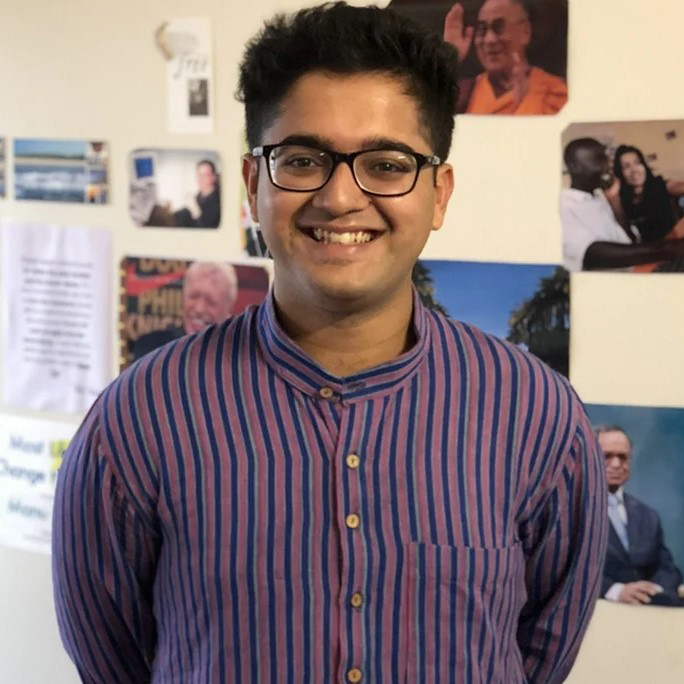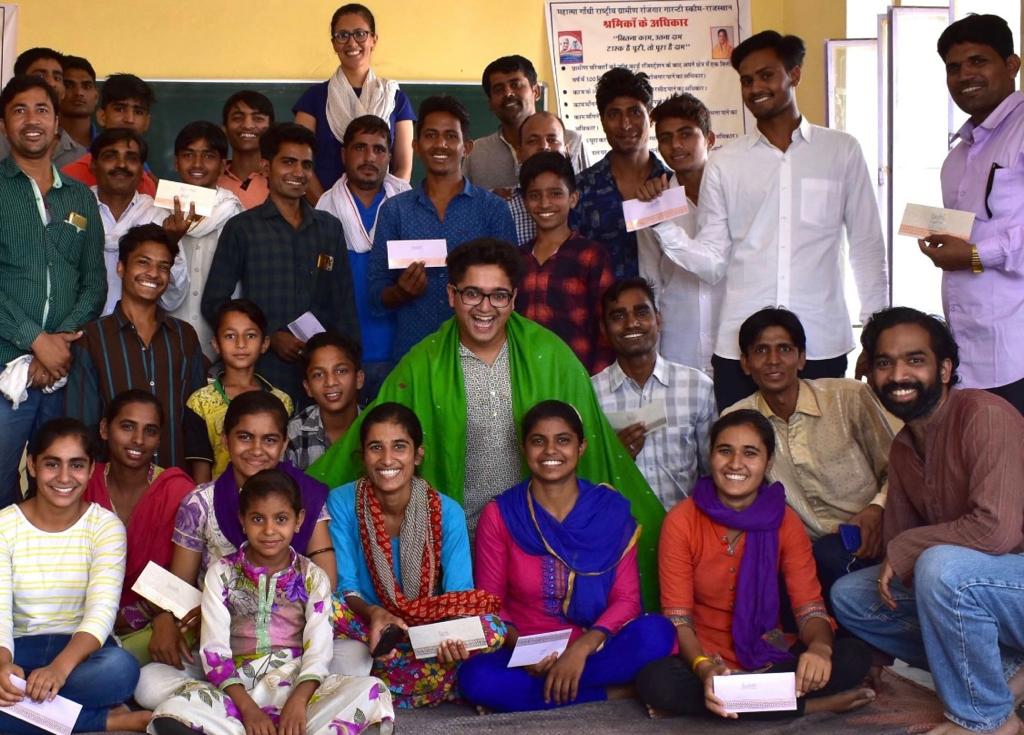(March 2, 2024) “I grew up in one of the poorest corners of Delhi – Shakur Basti. I spent my afternoons dancing to Bollywood songs and coding in the community computer lab. Through a series of scholarships, I became the first person from my community to go to a college in the US. In one generation, I went from Shakur Basti to Stanford,” is how 27-year-old Manu Chopra addressed people in one of his speeches. The founder of Karya was one of the few people who was able to find a path out of poverty, but not everyone gets that chance. This very thought led him to start Karya, a not-for-profit enterprise, that brings dignified digital work to rural Indians, helping move them out of poverty.
Every year, big technology companies spend a lot of money gathering information to teach their AI programs. But many people in rural India don’t have the chance to be part of this work. Karya helps fix this problem by connecting these rural communities to opportunities in the tech industry. Explaining how this works, Manu elaborates, “Microsoft wants to make a language model in Marathi, one of the many regional languages of India. They reach out to Karya to collect thousands of hours of speech data in Marathi. Karya takes Microsoft’s big digital task and breaks it into micro tasks and we distribute these micro tasks to our workers in rural India via their smartphone.” Apart from the employment, the biggest differentiator for these rural Indians is the pay. “We pay our workers 20 times the Indian minimum wage.”

Manu Chopra, the founder of Karya
In just two years, the AI startup has already helped 30,000 rural Indians earn ₹65 million so far.
ALSO READ | Induced AI to Karya: AI startups to look forward to in 2024
A new life at Stanford
Growing up, Manu was always interested in technology, and during his time at Stanford, where he studied Computer Science, he co-founded CS+ Social Good, Stanford’s first student group focused on the intersection of technology and social impact. Upon his return to India in 2017, he joined Microsoft Research as a fellow to explore ways to tackle extreme poverty by giving the poor access to digital work. During this time, he travelled the length and breadth of the country.
“I expected it to be harrowing. Mainstream media (within India and especially, abroad) paints such a bleak picture of India, as if nothing good has ever happened or will ever happen in India. I expected to feel jaded at the lack of progress, to be disappointed at the lack of good work happening on the ground. Obviously, the opposite happened. Every single village I visited blew me away. The more I travelled within India, the more optimistic I became,” he wrote on his website.
View this post on Instagram
Uplifting rural Indians through Karya
At 21, he began working for an AI firm, and during one of his field visits to a data company, he saw over 30 men hunched over their laptops. Upon striking a conversation, he learnt that they were earning $0.40 per hour for the data that was worth 10 times that amount. “I thought, this cannot be the only way this work can happen,” said Manu, who was named in the TIME100 Most Influential People in AI. “The idea in my head was, what if we could bypass skilling? Can we give people a livelihood and money for skills they already have? What is the skill that rural India already has? Their language?” he said in an interview.


Manu Chopra with the rural Indians working for Karya
This led to the birth of Karya – which means work for dignity in Sanskrit – in 2021. He chose to use Indian languages to help rural India make more money. He teamed up with his manager at Microsoft Research, Vivek Sheshadri, who became the Chief Technology Officer.
ALSO READ | Uday Bhatia: Diana Awardee helping illuminate households in rural India
They not only pay them $5 per hour, which is 20 times more than the minimum wage but also help them earn royalties every time their data is sold, which provides them a source of passive income. Right now, Karya focuses on gathering information in Indian languages that haven’t been included much in the AI world. This data will be used to create AI systems in those languages that are not only accurate but also fair for everyone. Their work involves gathering written, spoken, and picture information in India’s regional languages.
Creating an impact
“I genuinely feel this is the quickest way to move millions of people out of poverty if done right,” he told TIME, adding, “Wealth is power. And we want to redistribute wealth to the communities who have been left behind.”
With Karya, Manu Chopra is not only fulfilling the important requirement for accurate data in the AI industry but also changing how much money data annotation workers make. In the last few years, big tech companies have shown keen interest in Karya for its data requirements. For instance, Microsoft utilised the startup to acquire regional speech data for its AI products. Additionally, due to biases in AI chatbots stemming from large language model inputs, the Bill & Melinda Gates Foundation is collaborating with Karya to minimise gender-related biases in the data. Even Google is not far behind as it’s relying on Karya to amass speech data across 85 Indian districts.
Manu Chopra’s journey is proof that determination and innovation has the transformative power. Rising from poverty himself, he has broken the cycle and now aims to extend that opportunity to others. With a focus on providing dignified digital work to rural Indians, Manu seeks to empower individuals and communities, offering them the chance to participate meaningfully in the digital economy. Through his endeavours, he not only creates economic opportunities but also fosters a sense of pride and self-worth among those he seeks to uplift.
- Follow Manu Chopra on LinkedIn




